Design Otherwise: Transforming Design Education in the Arab Region
Monograph published by Bloomsbury (forthcoming January 2025)
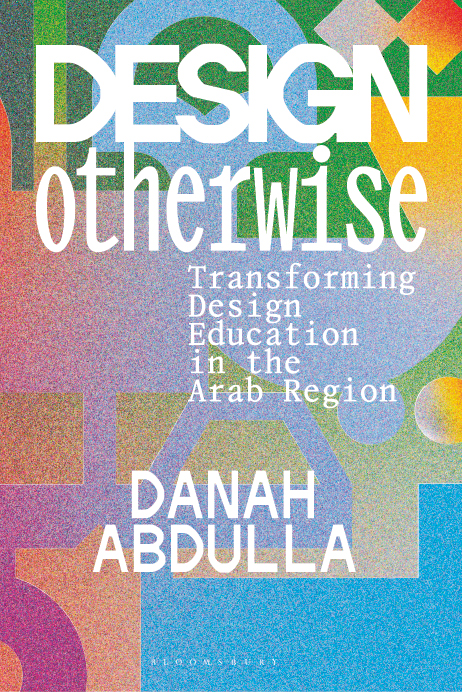
How can we study and teach design in a way that is critical, socially engaged and relevant to place? In this timely book, Danah Abdulla challenges us to imagine a design education and culture that moves beyond blindly borrowing Eurocentric models and frameworks. Drawing on learnings from work with design students, educators and designers in the Arab region, with a particular focus on Jordan and featuring examples from Lebanon, Egypt and the United Arab Emirates, Abdulla creates a dialogue with those who have most at stake in education to imagine how we can develop a collaborative, contextually based and socially relevant design education.
By first contextualising higher education and design education in the region, and examining the issues and challenges that are pertinent to the development of curricula and pedagogy, such as power, bureaucracy, language and access, Abdulla considers the purpose and relevance of design education in contemporary postcolonial societies. She explores how regional identities and class divisions shape the development of design cultures, as well as different perceptions of design and its value. Abdulla highlights design's role in society and the models of curricula and pedagogy appropriate for developing contextually situated design education. Outlining skills and strategies for equipping future designers, she proposes new possibilities for forms of practice and an actionable framework for developing design education.
Copies are available for pre-order on Bloomsbury’s website
If you are interesed in hosting me for the book tour, please contact me.
Book design and cover by eyen collective
Countless Palestinian Futures
Developed with Sarona Abuaker
Game photos by Danah Abdulla
Event photos courtesy of the Mosaic Rooms
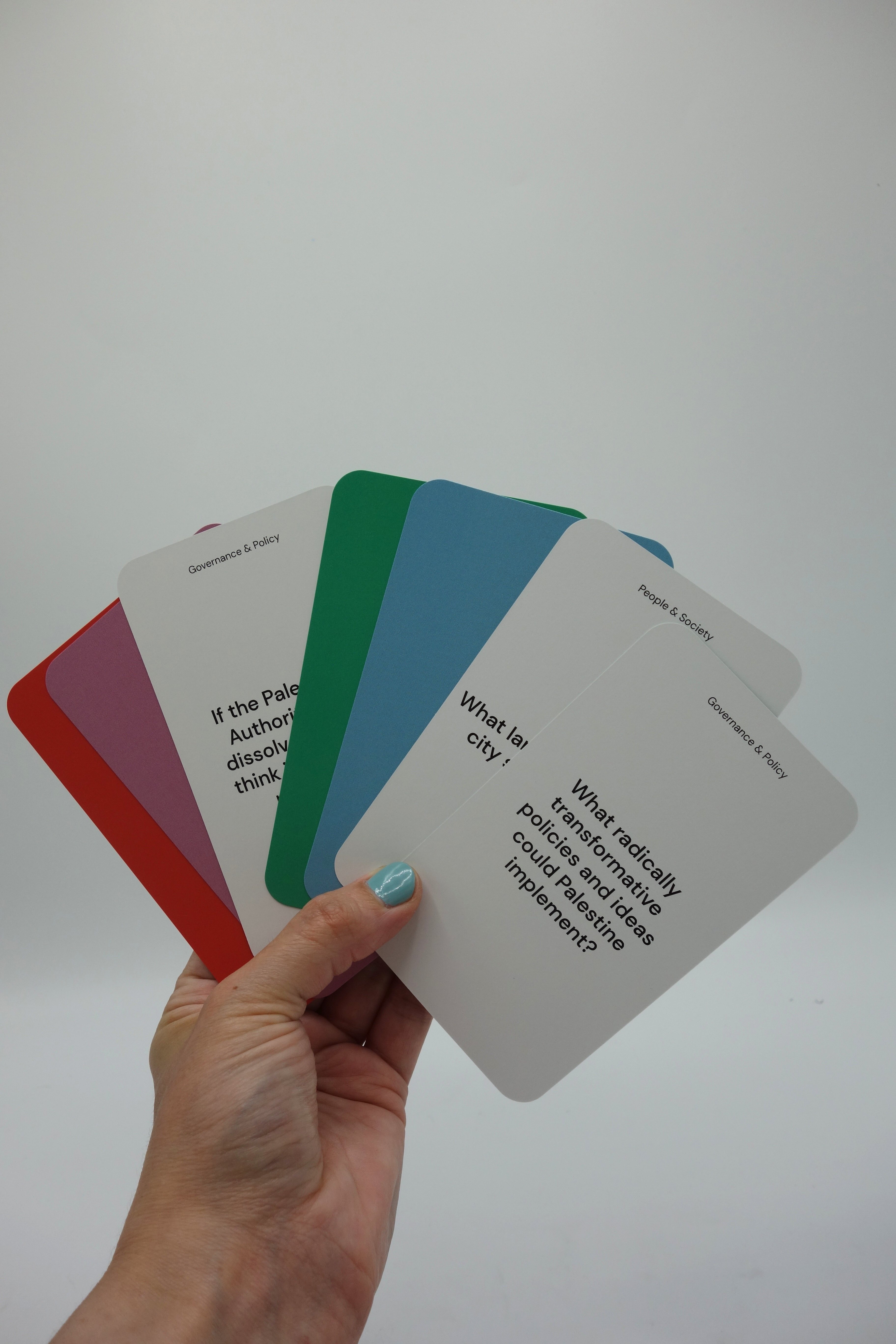
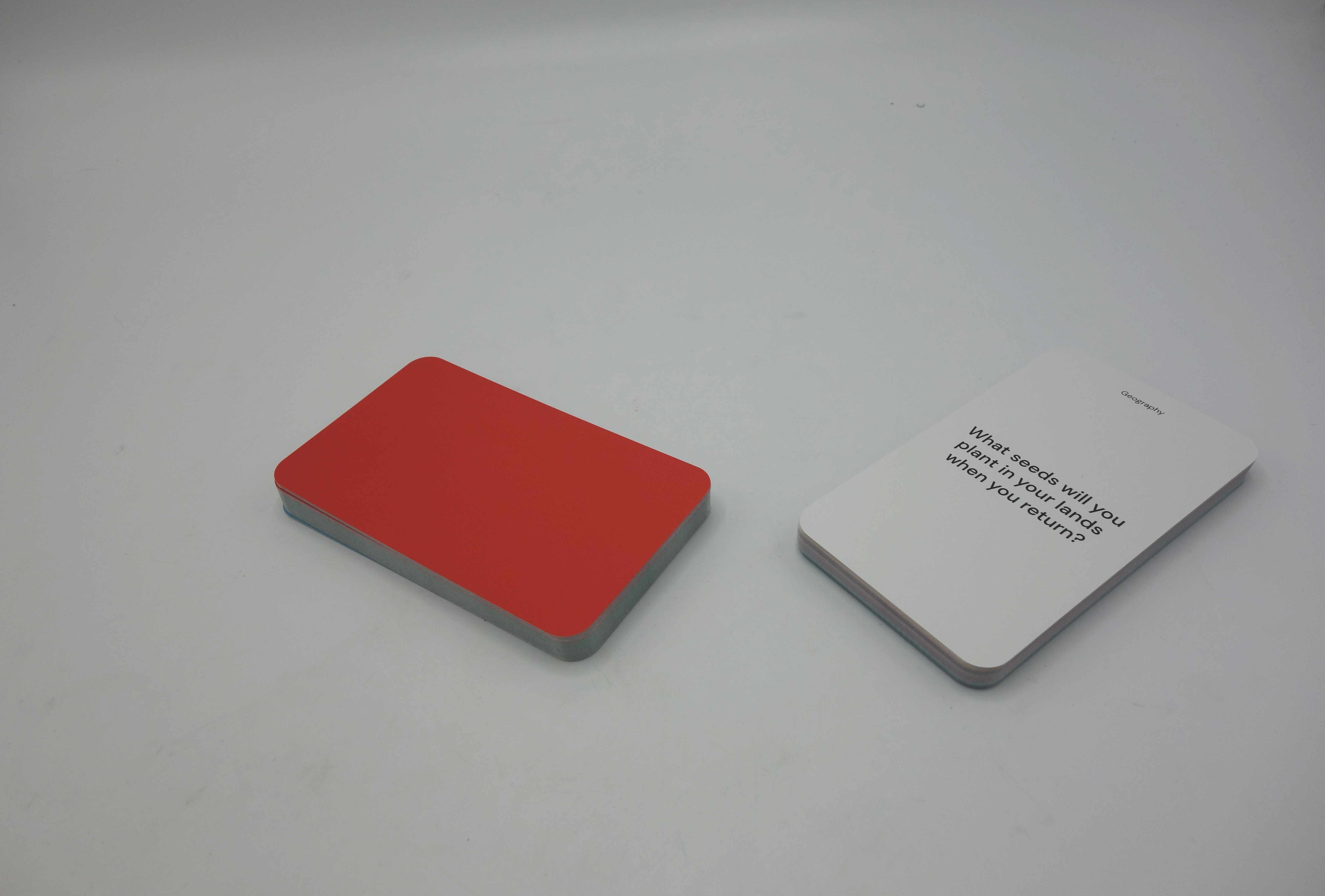

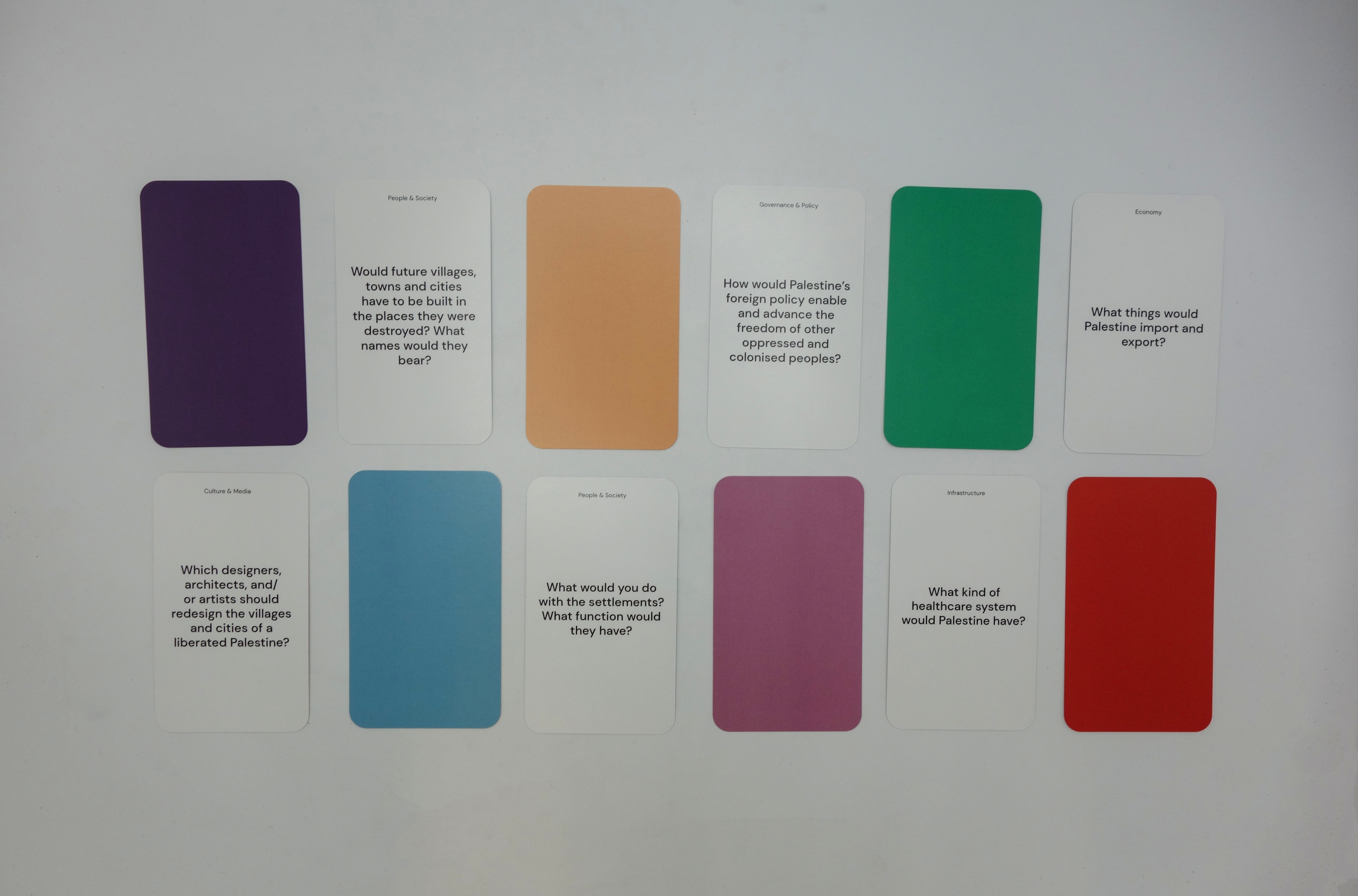
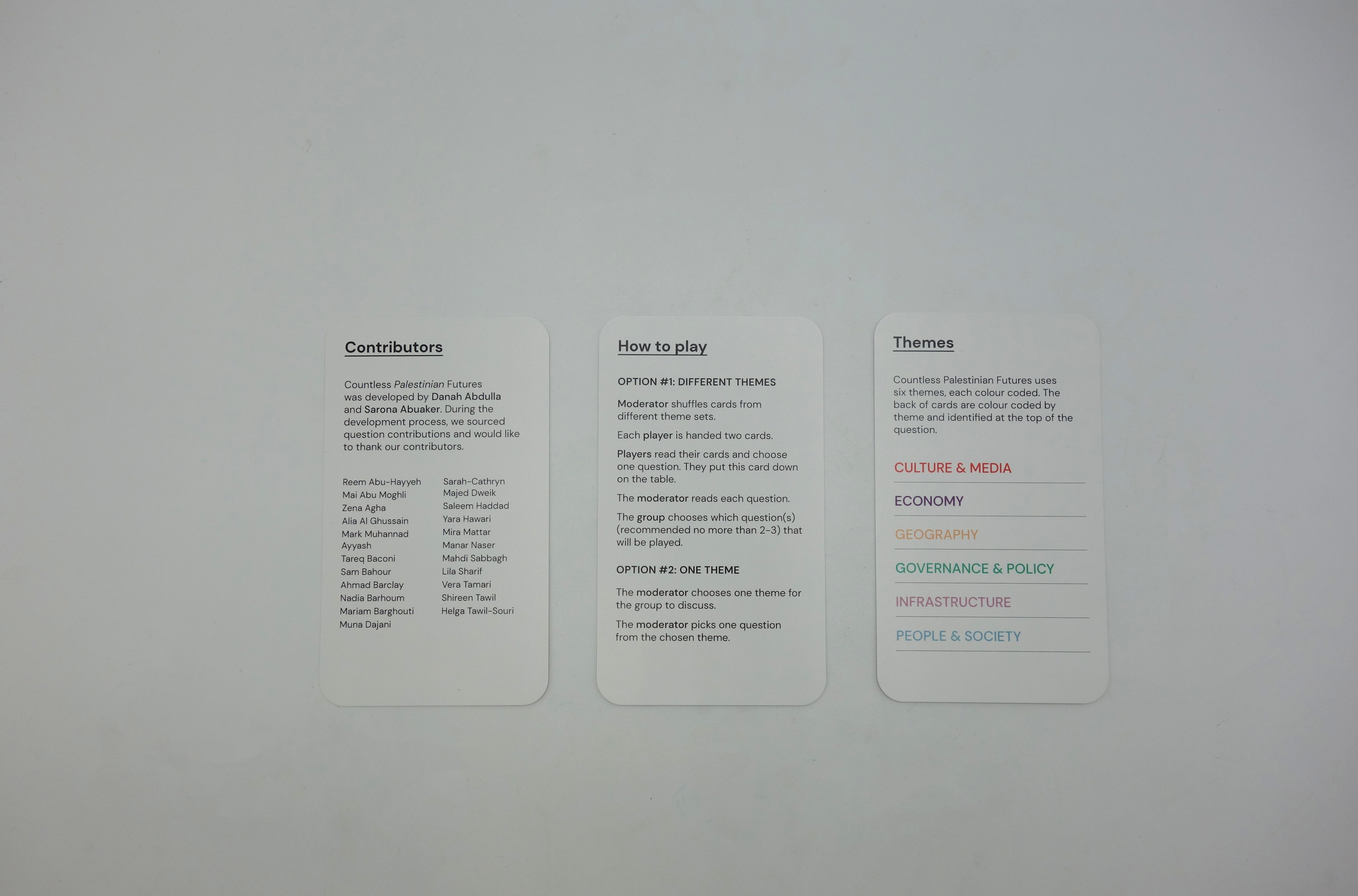
Conversations around Palestine are often framed either in historical terms or the present. But what and where are the tools that help us think through what a return to Palestine could be? Countless Palestinian Futures is a game that aims to stimulate the imagination by helping people develop tangible outcomes and ideas around Palestinian futures. Questions are framed around near, medium and long term futures that spark conversations and challenges players to consider Palestinian futures.
A few examples of questions:
- What would the impact to surrounding Arab countries be if the majority of their Palestinian populations left?
- What would be done with the Apartheid Wall?
- What form of governance would Palestine have?
- What strategies could be put in place to address the climate emergency?
- What urban planning and transportation strategies could be put in place to address private automobile ownership?
Countless Palestinian Futures is an engaging, discussion-based game featuring over an array of questions grouped under six themes. The game is designed to be played with 3-6 players or to be used as a question that sparks a conversation between two people.
Countless Palestinian Futures was developed for the public programme of the Stateless Heritage exhibition. It was trialled at the Mosaic Rooms in October 2021, and at the Anti-University festival in September 2022. The project was awarded a research fellowship with the Center for Lebanese Studies at Cambridge University to expand the game to Beirut, Lebanon and Santiago, Chile in Summer 2023.
Visit palifutures.com for more on the game.
- Presentation on Countless Palestinian Futures for SOAS Middle Centre (February 2022)
Designerly Ways of Knowing: a working inventory of things a designer should know
A guidebook slash notebook of things designers should think about in order for them to know.
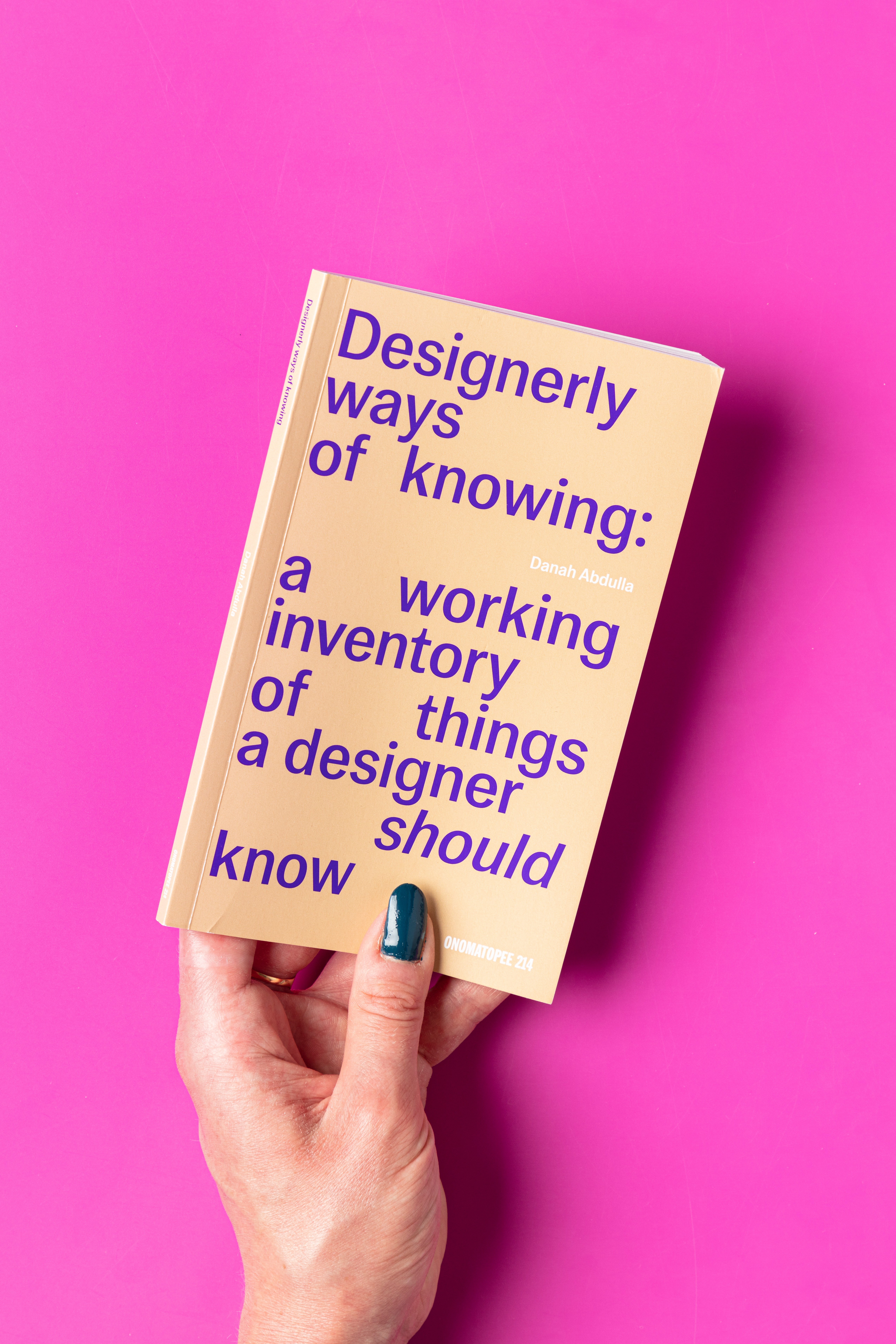
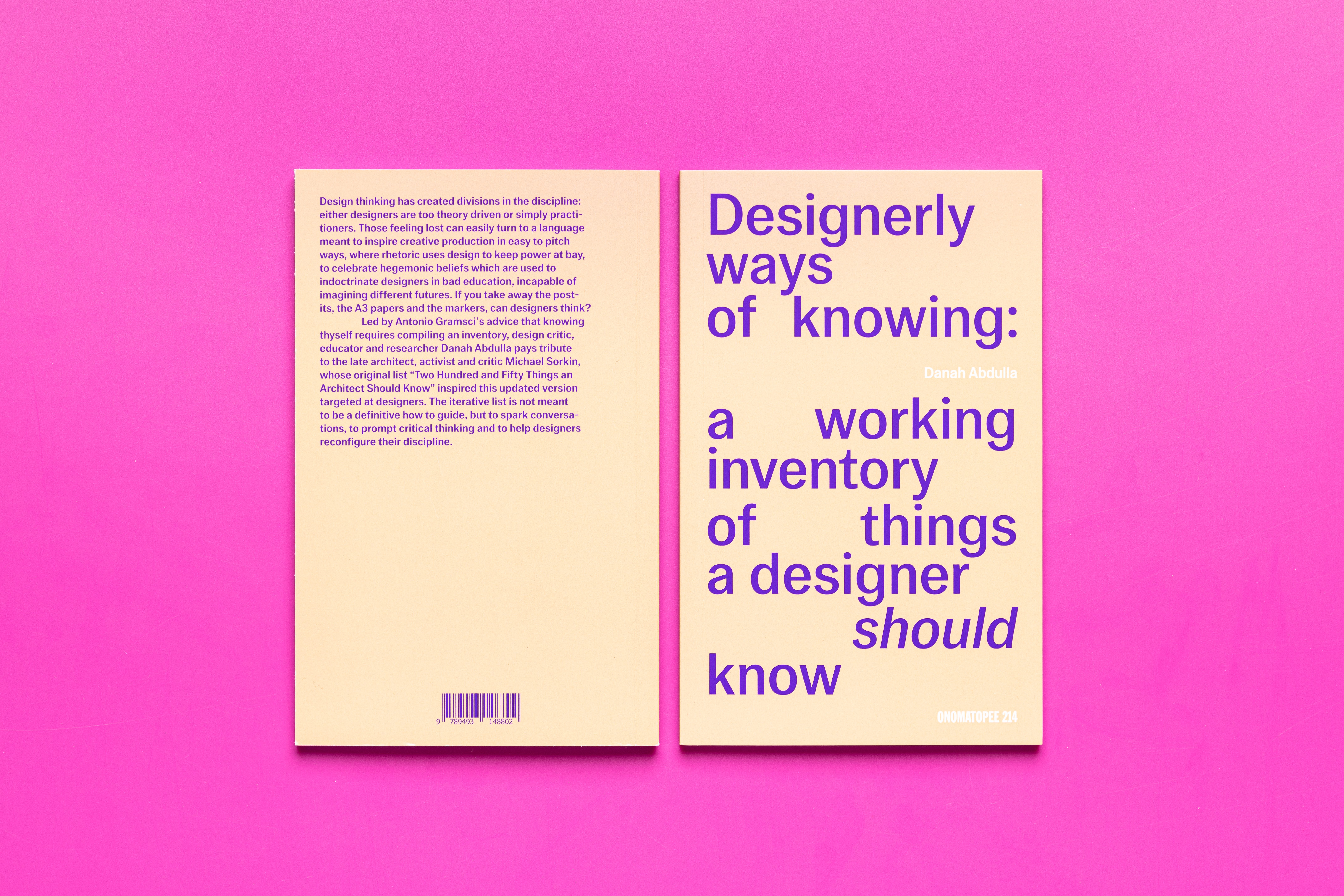
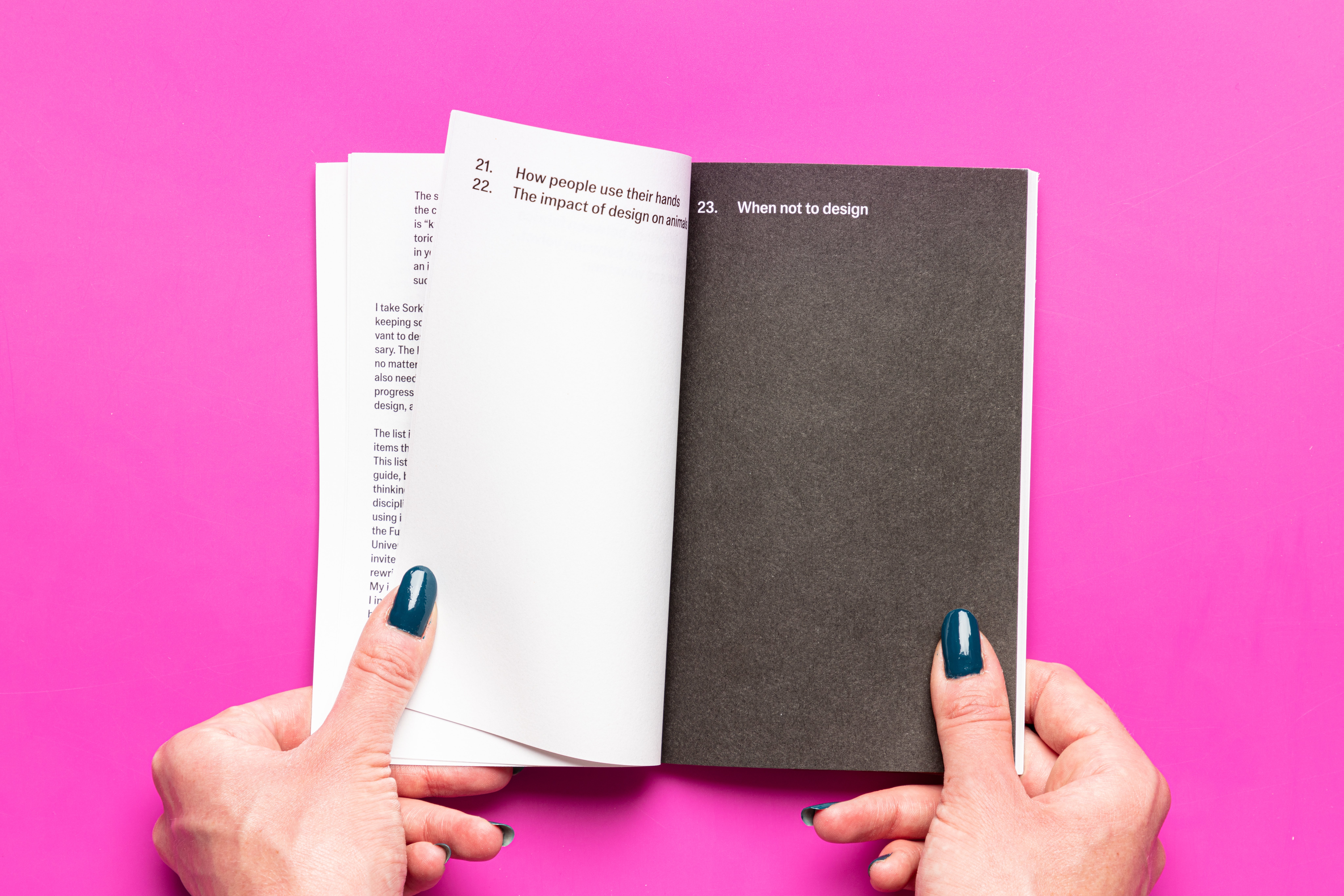

Design thinking has created divisions in the discipline: either designers are too theory driven or simply practitioners. Those feeling lost can easily turn to a language meant to inspire creative production in easy to pitch ways, where rhetoric uses design to keep power at bay, to celebrate hegemonic beliefs which are used to indoctrinate designers in bad education, incapable of imagining different futures. If you take away the post-its, the A3 papers and the markers, can designers think?
Led by Antonio Gramsci’s advice that knowing thyself requires compiling an inventory, design critic, educator and researcher Danah Abdulla pays tribute to the late architect, activist and critic Michael Sorkin, whose original list “Two Hundred and Fifty Things an Architect Should Know” inspired this updated version targeted at designers. The iterative list is not meant to be a definitive how to guide, but to spark conversations, to prompt critical thinking and to help designers reconfigure their discipline.
Copies of the first print run are sold out, the second print run, featuring a new cover, will be available via Set Margins soon. Pre-order on their website.
First print published by Onomatopee (2022)
Second print published by Set Margins (2024)
Images © Sonia Dominguez & Rob van Leijsen
RADDAR#3 : Politiques du design / Design politics
Edited by Danah Abdulla | Cover by Studio Safar | Design by Julien Mercier | Photos by Danah Abdulla
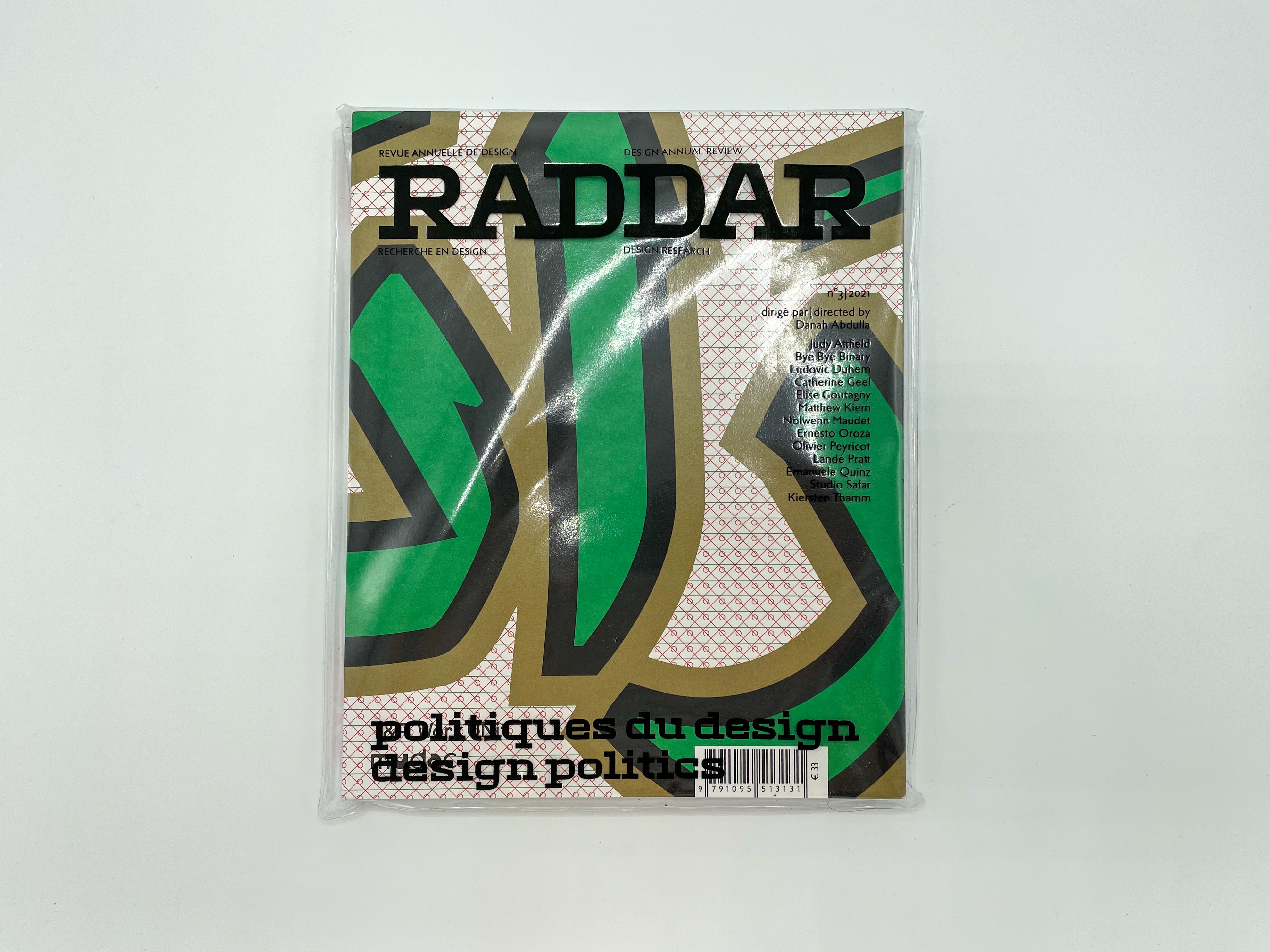
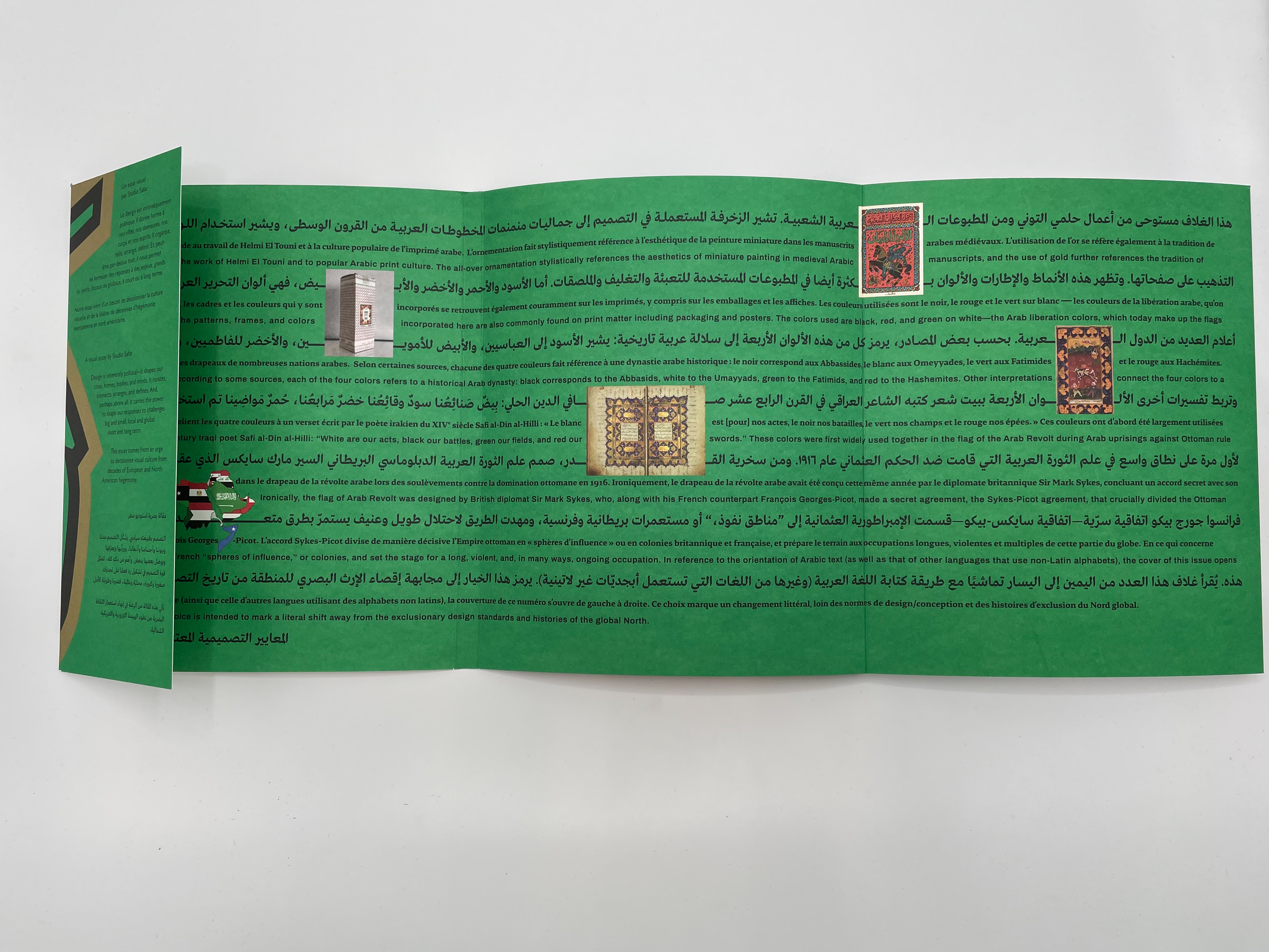
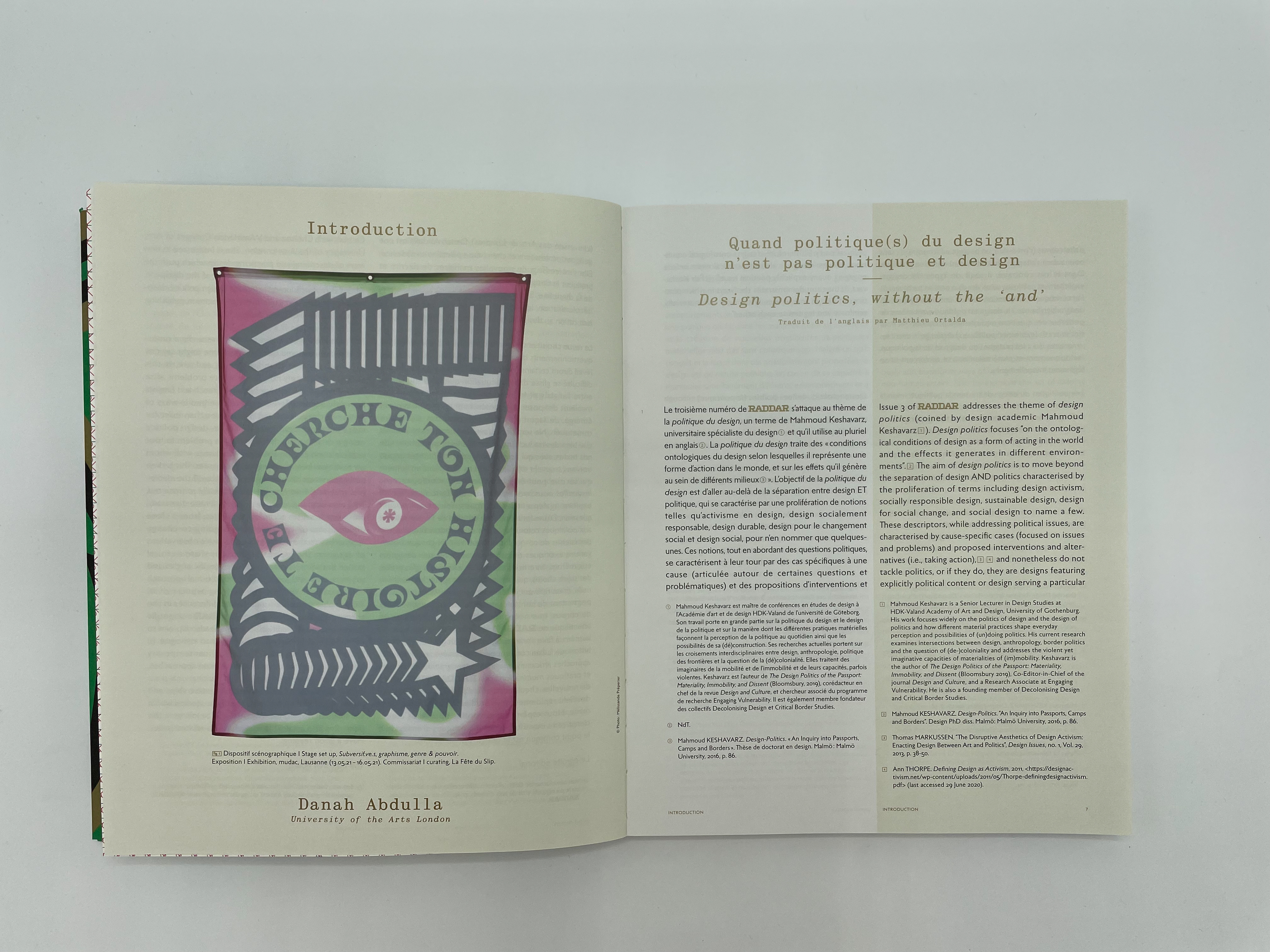
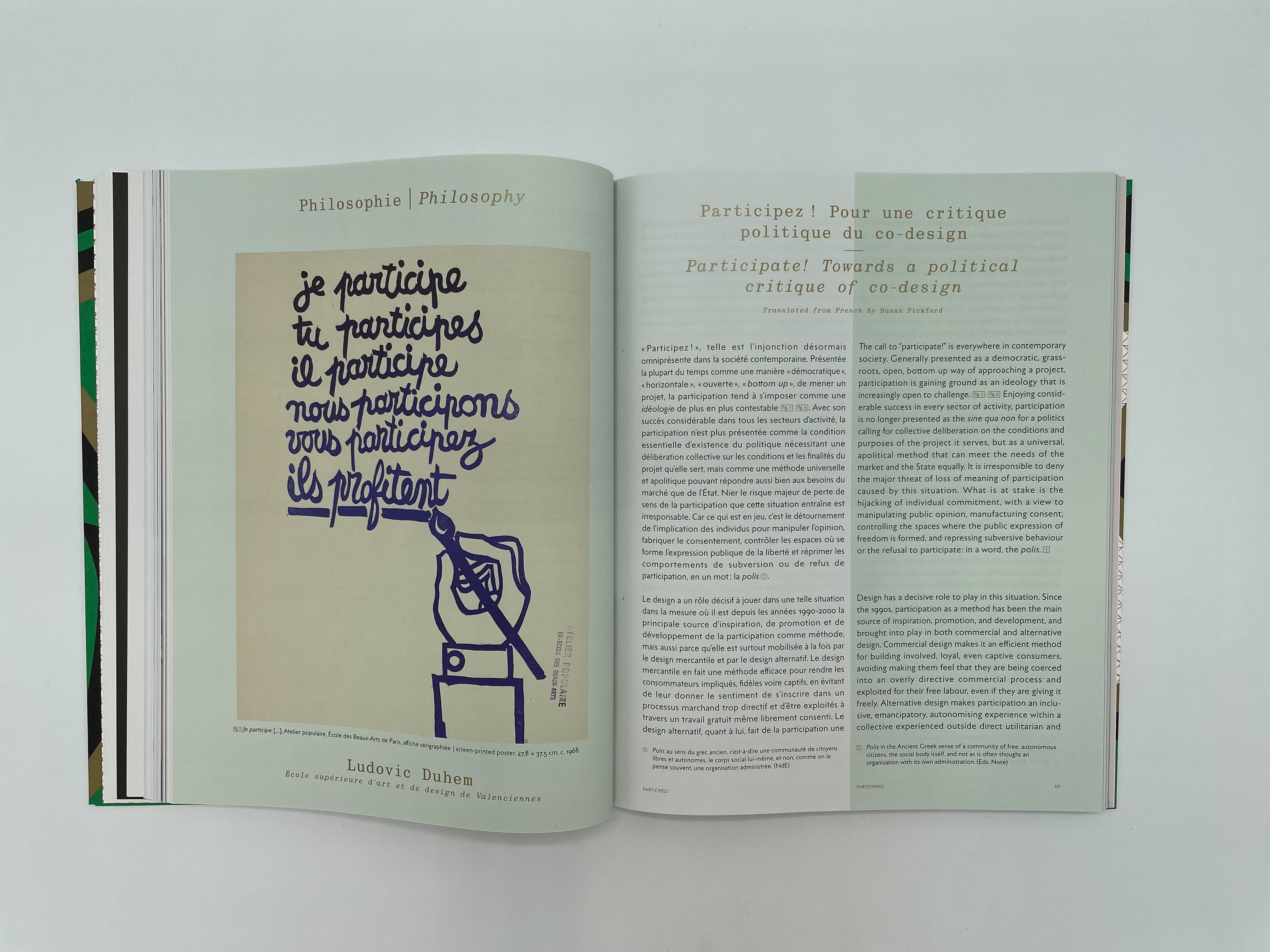

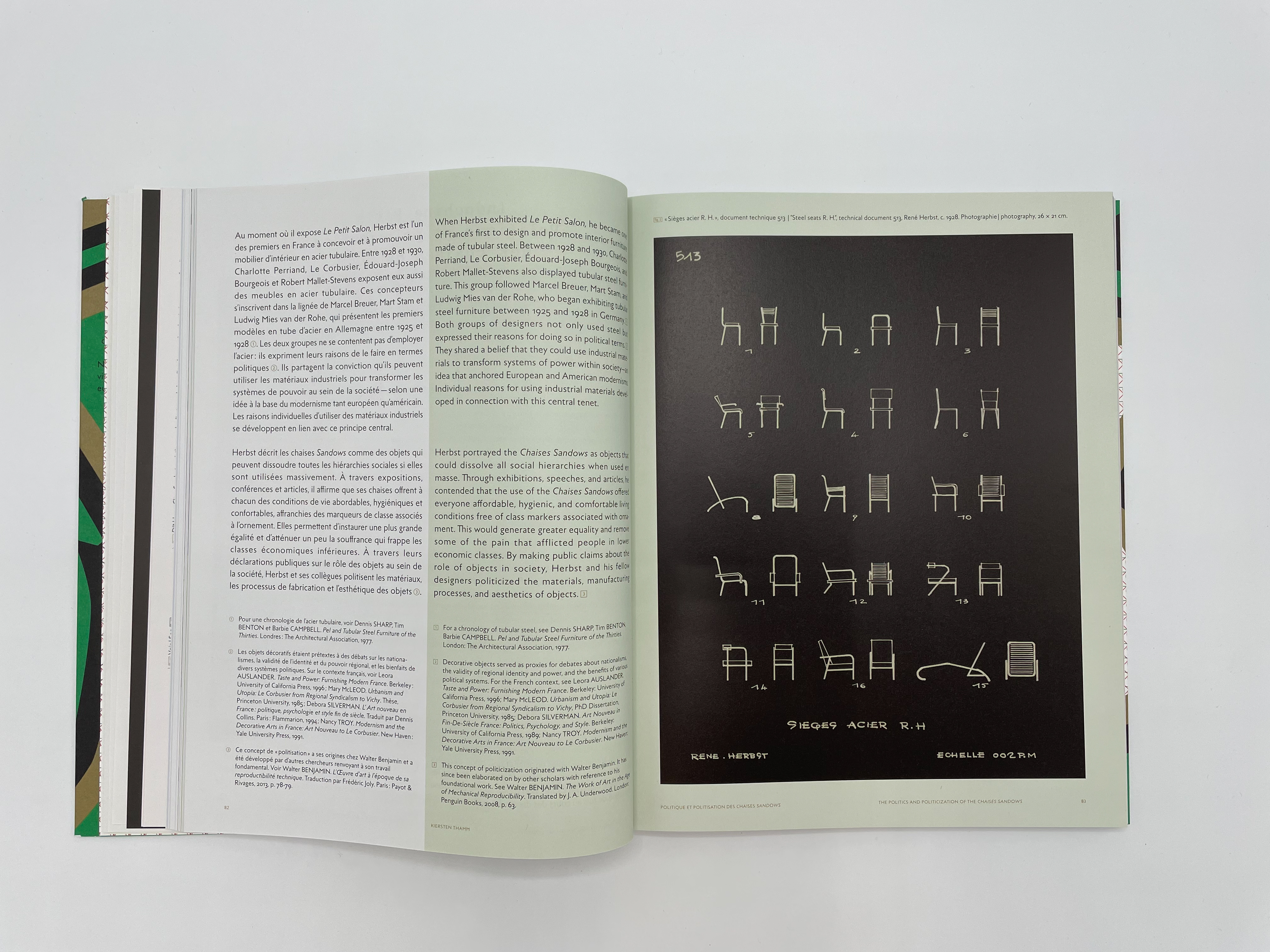

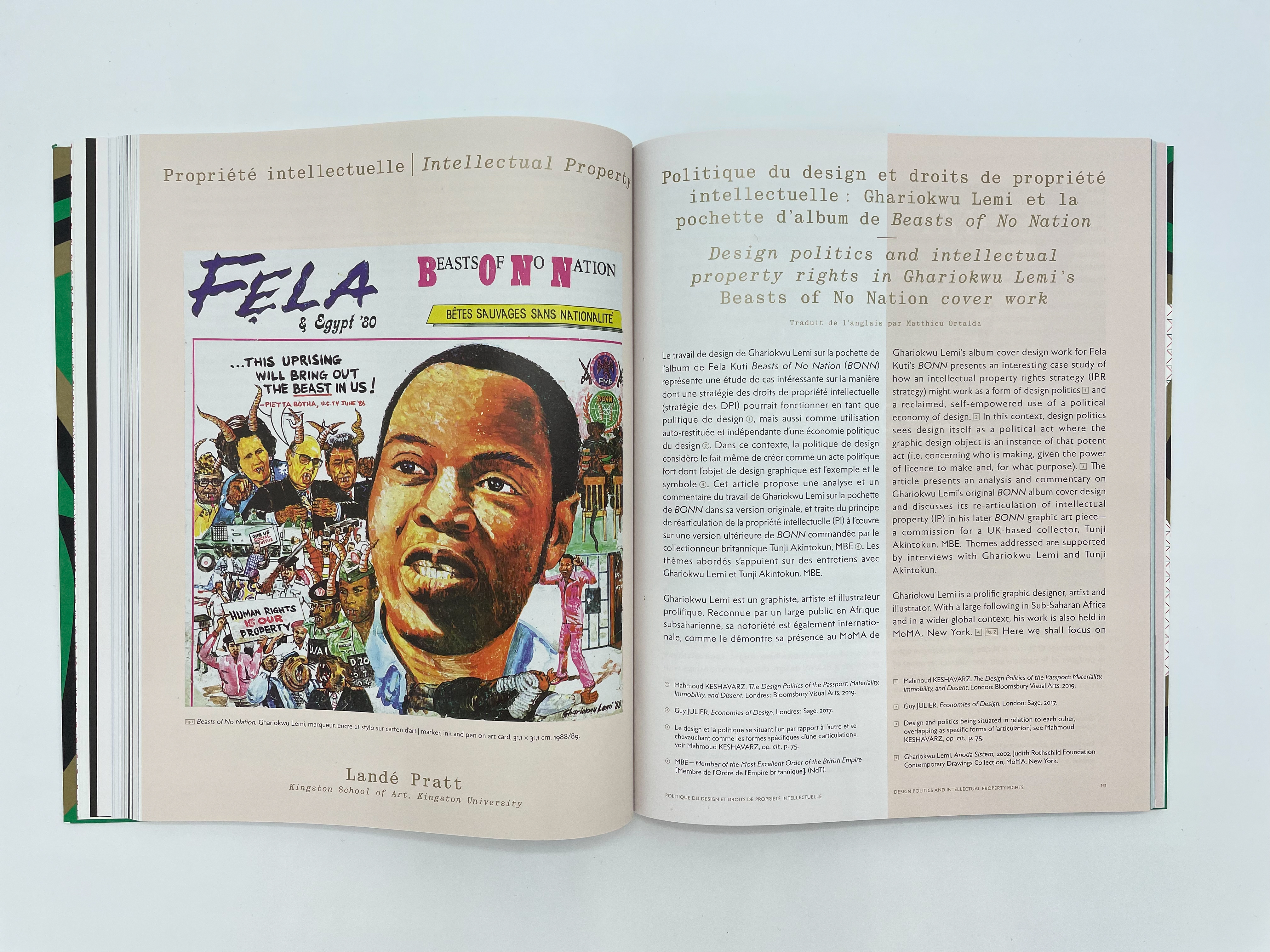
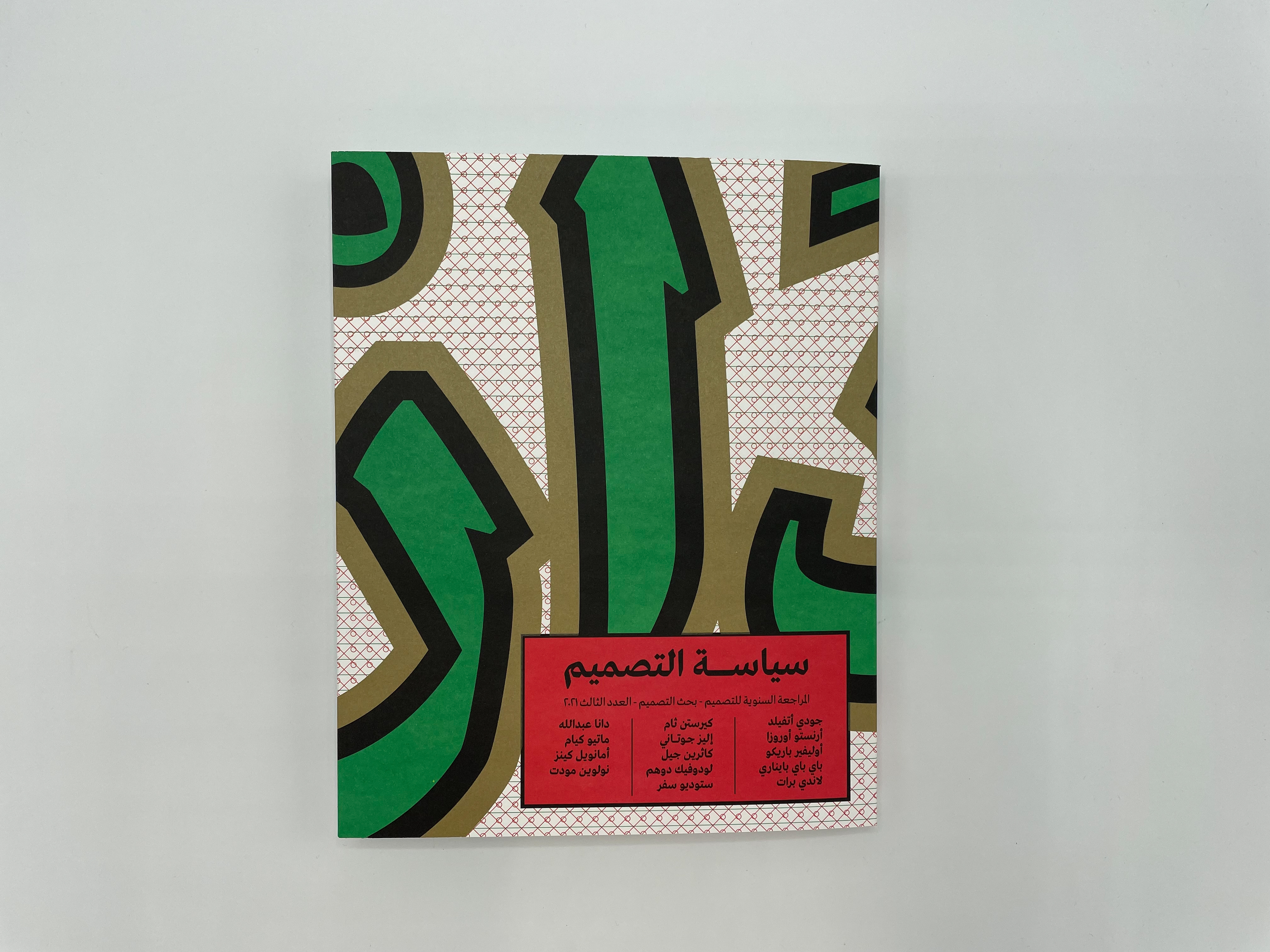
I was invited by the Musée cantonal de design et d’arts appliqués contemporains in Lausanne to edit an issue of Raddar, a bilingual journal on design research. Raddar 3 addresses the theme of design politics which focuses “on the ontological conditions of design as a form of acting in the world and the effects it generates in different environments”.
The issue featured contributions in both French and English – entirely translated – on the limits of collaboration in design, intellectual property and copyright by exploring the works of the renowned Nigerian artist and designer Ghariokwu Lemi, the material history of Chaise Sandows, inclusionary forms of typography and language in French, and a challenge to the humanistic reasoning of ethics in design theory to name a few. It also includes the first French translation of Judy Attfield’s article “FORM/female FOLLOWS FUNCTION/male : feminist critiques of design”. The cover, designed by Studio Safar, is in Arabic, English and French, flipped to be read right to left to engage readers in a different reading experience.
Copies are available via T&P Work Unit.
Decolonization & Design Lesson Plan
Developed with Decolonising Design Group
To ensure audience reach, we wrote a collective lesson plan developed to accomodatea 5 week module that caters for both studio based and theory based contexts. We provide guidance on how to achieve this in each scenario. Based around five learning objectives, each entry had a set of readings, discussion questions, and homework. At my university, the library has already adopted this as a resource.
Available for free via Bloomsbury